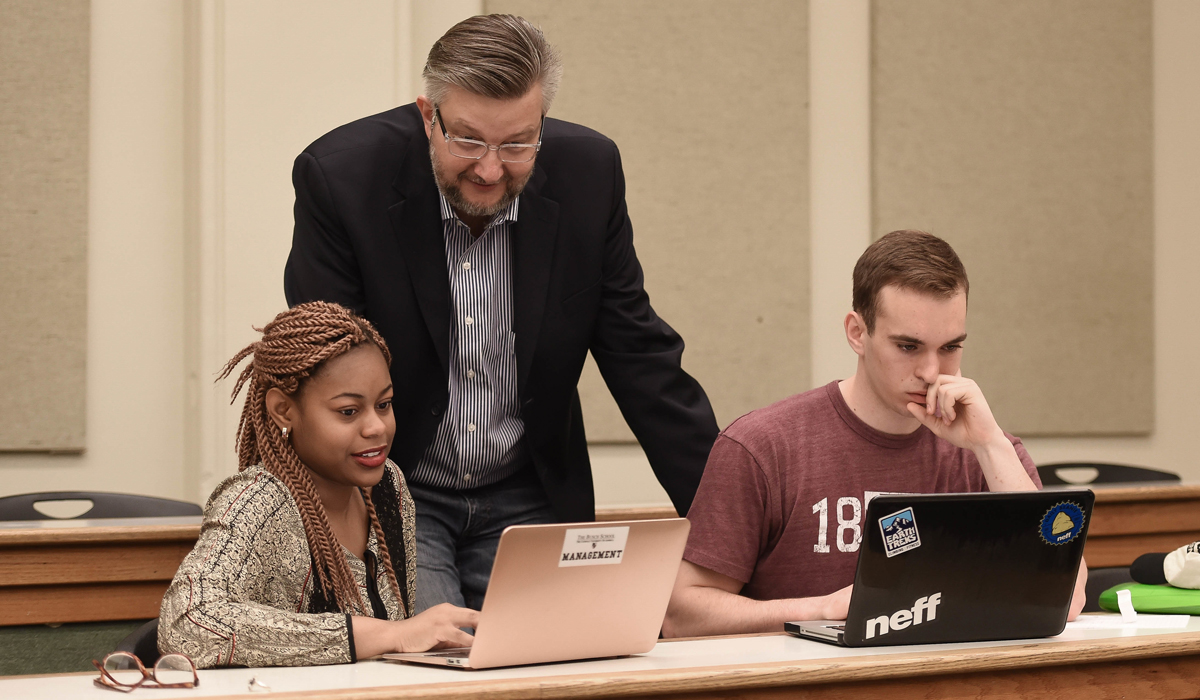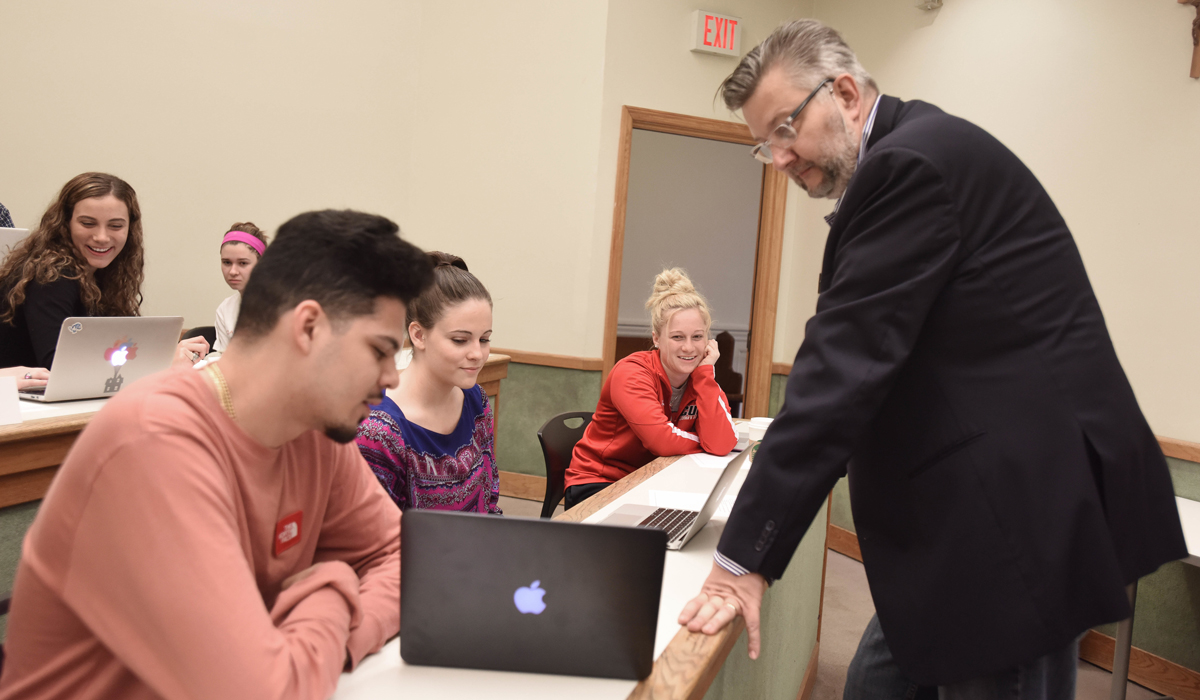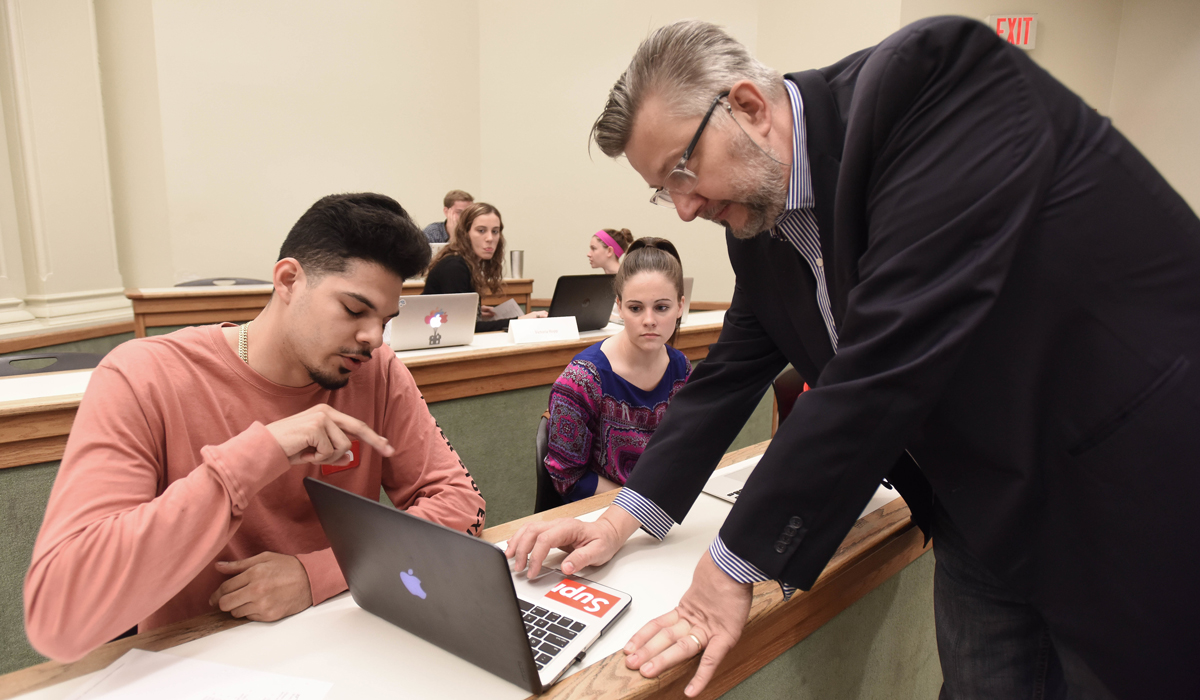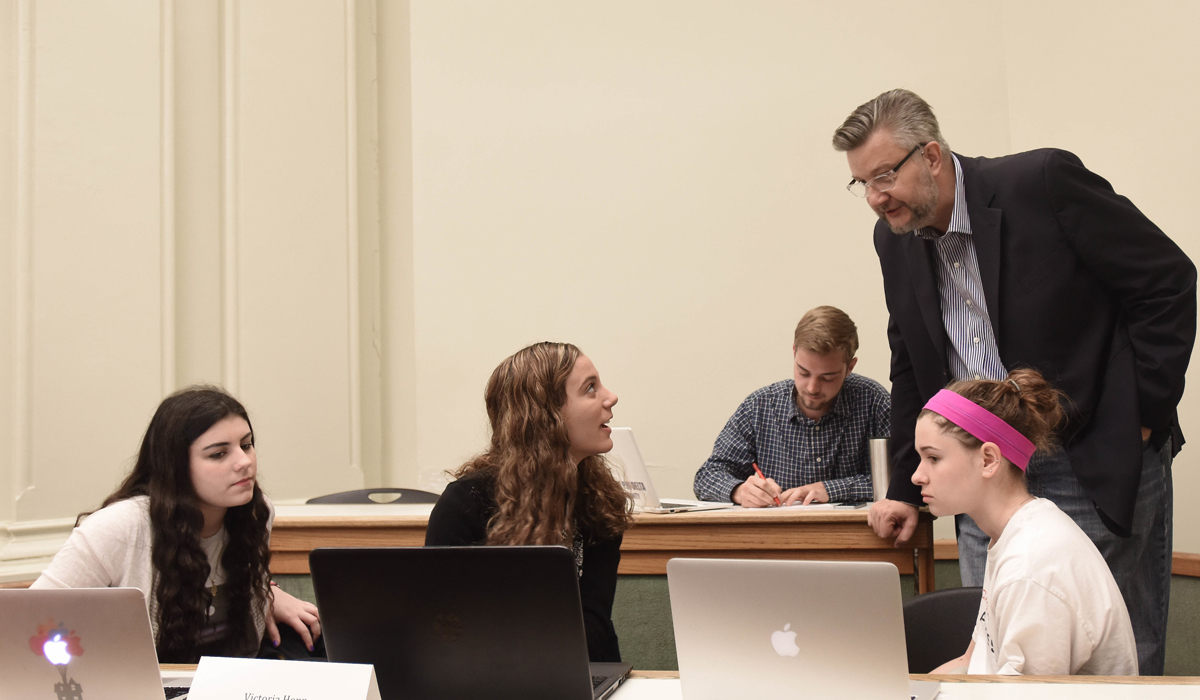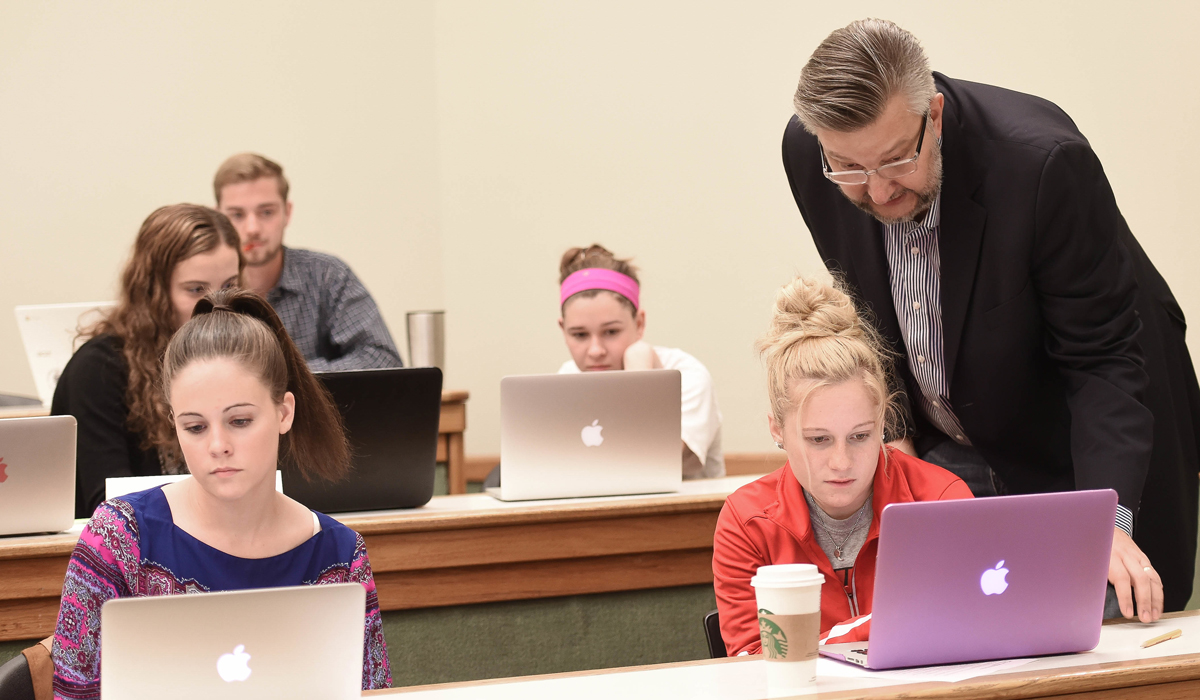
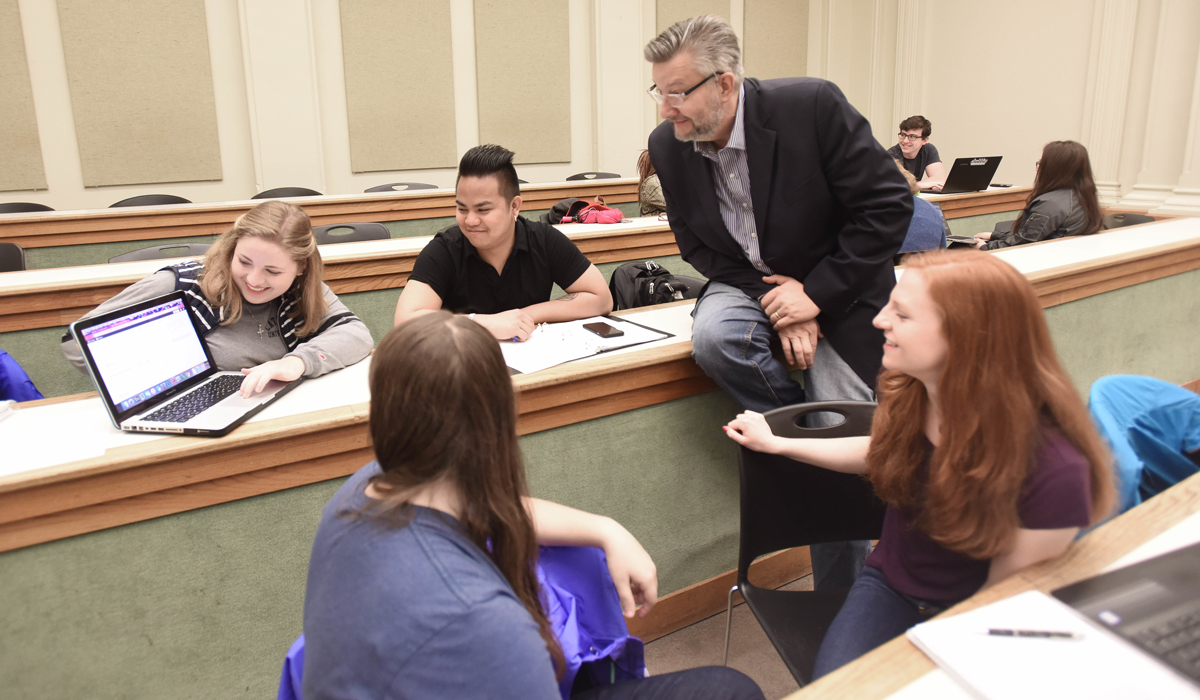
“When was the last time you were doing something you loved so much that you lost track of time?”
When teaching his signature course, Tools and Foundations for the Vocation of Business, Andreas Widmer asks that question, daring his students to think outside the textbook.
“What is your soul telling you? What is God telling you?”
Widmer is talking about business in the context of passion, virtue, and a respect for human dignity. He is the director of the Arthur and Carlyse Ciocca Center for Principled Entrepreneurship at the Tim and Steph Busch School of Business and Economics, where faculty teach their students that business is a noble vocation.
“Finding your calling is about much more than a job that will earn you the most money,” he tells the class early in the spring semester. “That can be a disaster. People who choose their career solely on money are usually the people who are miserable on Sunday night.”
In this course, geared primarily to first-year students, Widmer teaches a solid grounding in business basics along with lectures on such topics as temperaments and character, the art of happiness, key concepts of Catholic social doctrine, vice versus virtue, and enterprise solutions to poverty.
Real-life case studies put the students in the position of business leaders faced with ethical dilemmas. The students work on two semester-long projects. Each student writes a paper describing his or her own moral compass complete with a life mission statement. Each student also creates a small business through a market-affiliate blog.
Widmer schools his students in basic market research. “The success of a start-up comes from developing a niche. You have to narrow your focus so much that your audience is made up of just 1,000 super fans who have an absolute fascination for what you have to offer.”
Later in the semester, students meet in small groups to present their blogs and seek feedback from their peers. “This is how business works,” says Widmer. “You are networking. Help each other out. Share your connections. Offer honest feedback. Does the blog connect with you? Is it engaging?”
Paige’s start-up offers tips and tricks for families traveling with young children for the first time. Victoria’s blog, “Spreading the Sunshine,” helps college students in urban areas start service projects. Bridget shares her love of kickboxing in her “Hook Like a Girl” blog. Miguel shares his love of soccer in “Soccer Spotter,” which helps newcomers to the D.C. area find places to play.
In one corner of the classroom, Emily Prendergrast, Sarah Ajih, John Galatro, and James Carroll are sharing their blogs with each other. “How did you add the different menu categories,” James asks Sarah. “It takes a while,” she says. “You have to go deep into the settings. I’ll show you.”
Widmer stops by their group. “Remember you can fail and still get a good grade. I’m looking for you to take risks, to find your voice. Go all out.”
Vocation of Business is a popular course on campus. Graduating seniors often credit it with helping them find their calling.
“This course has really helped me understand the importance of being true to myself; the best version of myself,” says Ajih, whose blog, “Afro Beauty Boss,” offers lifestyle tips for young black women.
Carroll says he hopes to help other students with his “College Guide to Gluten Free.” It took him 18 years to get his own life-changing diagnosis of a gluten allergy. “It’s hard to be gluten free in college. I’ve got some strategies that work.”
The course has changed the way Carroll views business, he says. “Professor Widmer said something in one of our early classes that left an impression. He said, ‘Make services that truly serve and goods that are truly good.’”
